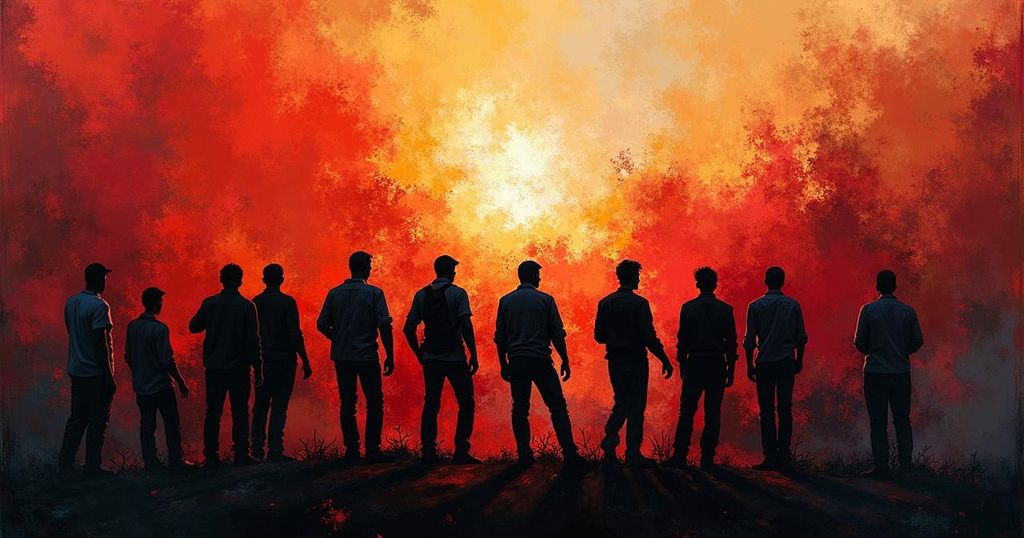Colonial Conflicts: Understanding the Struggles of Palestine and Kashmir
The article examines the historical and geopolitical complexities of the conflicts in Palestine and Kashmir, emphasizing their colonial legacies and divergent paths. Drawing parallels between the struggles, it highlights significant differences shaped by external influences, particularly in the wake of the Cold War. The piece underscores the need for international dialogue and resolution while noting the precarious situation in Lebanon amidst ongoing tensions.
The recent discourse surrounding conflicts in Lebanon underscores the complexities inherent in the ongoing colonial legacies, particularly as they relate to the struggles of Palestine and Kashmir. Prime Minister Shehbaz Sharif of Pakistan drew parallels between these two regions at the United Nations, citing their historical contexts of colonial oppression and the pursuit of rights promised through United Nations resolutions. While there are superficial similarities, such as colonial origins and external interventions, the distinct trajectories of the Palestian and Kashmir struggles reveal significant differences. Israel’s establishment in 1948 coincided with the turbulent beginnings of the Kashmir conflict, marking the start of two deeply entrenched issues resulting from colonial strategies. However, unlike the perpetual friction in Palestine, the Kashmir issue has seen relative dormancy since the Indo-Pakistani War of 1971, only reigniting as external geopolitical dynamics shifted with the end of the Cold War in the late 20th century. The Kashmir conflict has since been characterized by an armed insurrection against Indian rule, encompassing challenges unique to the region along with external allies who align differently according to their national interests. In contrast, the ongoing turmoil in Palestine has a different historical underpinning, particularly with the ramifications of U.S. military endeavors in the Middle East, which have devastated states that were once aligned with the Soviet Union. The regional dynamics, including the relationships of countries like Saudi Arabia and Jordan with the West, further complicate the Palestinian plight. Within this spectrum, Kashmir’s liberation movements have occasionally been supported by Western powers, diverging from the Soviet alignment experienced by Palestinians. The recent display of military might and verbal posturing between India and Pakistan regarding Kashmir appears to contrast sharply with the realities on the ground, wherein both nations maintain a complex relationship clouded by inter-state partnerships, despite their historical animosities. This ongoing framing of the Kashmir dispute on the international stage by Islamabad highlights the challenges of meaningful dialogue and resolution as evidenced by international media covering the guided tour given to foreign diplomats during Jammu and Kashmir elections, an effort seen as India’s own attempt to ‘internationalize’ the issue. As geopolitical tensions continue to rise, it is essential to compare the methods utilized to surveil and manage conflict in both regions. Advanced military technologies, such as satellite surveillance critical to Israel’s operations against perceived adversaries, starkly contrast with the less sophisticated methods available to mitigate the Kashmir conflict, highlighting disparities in foreign intervention and capability. In light of the ongoing violence in Lebanon, the future remains uncertain, with Hezbollah’s capabilities appearing intact and Iran signaling its commitment to support its position in the region. It highlights the fragility of peace and underlines the potential for the conflicts to escalate unless powerful nations intervene to establish a semblance of order, prioritizing diplomatic channels to alleviate suffering rather than propagating cycles of violence.
The article delves into the intricate dynamics of contemporary conflicts in the Middle East and South Asia, particularly drawing parallels between the struggles faced by Palestinians and Kashmiris. It highlights historical contexts, colonial legacies, and the impact of global geopolitical shifts, including the Cold War and U.S. military involvements. Explaining how similar colonial origins set forth divergent paths for both Palestine and Kashmir, the piece emphasizes the need for productive international dialogue and resolution to sate the deep-rooted tensions and violence experienced in these regions.
In conclusion, the discourse surrounding Palestine and Kashmir reveals stark contrasts in their historical contexts, external influences, and current geopolitical realities. The ongoing conflicts question the efficacy of international intervention and underscore the pressing need for dialogue and resolution. As tensions escalate, particularly with the potentially volatile situation in Lebanon, it becomes increasingly essential for global powers to reassess their strategies in addressing colonial conflicts, striving to produce sustainable peace rather than perpetuate cycles of violence.
Original Source: clarionindia.net




Post Comment